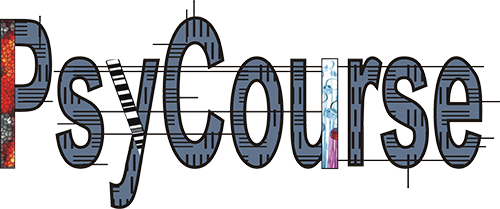2020-07-13
036_ Genotype-Phenotype Correlations of the COVID-19 Host Genetics Initiative
Research Question and Aims
In the context of infections that are new to humans and in which no positive selection for adaptation to recurrent or frequently occurring viral infections has yet been possible, it can be assumed that host genetic factors play a role in the development and the different phenotypic manifestations of the disease (i.e. e.g. disease severity, certain symptom constellations and, possibly, also virus elimination and response to therapy). At the same time, host genetic factors, especially also in a psychiatric context, may impact an individual's response not only to infection itself but also the susceptibility and resilience towards the psychological stress factors to which the SARS-CoV-2 pandemic has exposed the world's population.
The existence of infection-modifying host genetic factors has already been demonstrated in the context of other viral infections (e.g. Prokurina-Olsson et al. Nat Genet, 2013; Thomas et al., Nature, 2009; Ge et al. Nature, 2009). Also, in the context of SARS-CoV-2 infections, first results suggest that certain genetic risk factors favor the development of acute respiratory distress syndrome (ARDS) in the context of SARS-CoV-2-caused COVID-19 disease (Ellinghaus et al., N Engl J Med, 2020). Also, the SARS-CoV-2 pandemic presents a unique stressful.
The aim of the research project proposed herein is to gain a better understanding of the host-virus interaction in the context of an infection with SARS-CoV-2, both from an infectious disease stand point but also from a psychological stress standpoint. To this end, patients with COVID-19 disease recruited at the Klinikum rechts der Isar in the context of the COMRI and the Virology Study on SARS-CoV-2 are to be included in national and international consortia for research into the human genetic basis of SARS-CoV-2 infection. Control individuals recruited into PsyCourse will be used as corresponding general population controls. The international consortium, the COVID-19 Host Genetics Initiative (CHGI; https://www.covid19hg.org) is lead be experts in the field of genotype-phenotype correlation in complex genetic diseases which a long-standing track-record and expertise in conducting collaborative research projects in large international consortia. Inclusion of data from the PsyCourse samples into this global consortium presents the main focus of this proposal. Additionally, supplemental national analyses may also be conducted under the umbrella of the Deutsche COVID-19 Omics Initiative (DeCOI; https://decoi.eu).
In these large collaborative projects, genetic factors at host level will be identified that are associated with certain characteristics of COVID-19 disease as well as the (psychiatric) population`s response to the stress caused by the SARS-CoV-2 pandemic (CHGI-MentalHealth coordinated by Prof Lea Davis, Vanderbilt University).
The analyses proposed here will analyze genome-wide genotyping data of patients with SARS-CoV-2 infections and general population controls. These data will be used in global genome-wide association studies (GWAS) to identify the above-mentioned host genetic factors. Further, the data may also be analyzed independently from the consortia in cooperation with Prof. Julien Gagneur, Faculty of Informatics, Technische Universität München, Munich, Germany, to further analyze host genetic factors in the context of SARS-CoV-2 infections, the SARS-CoV-2 pandemic and the populations response.
Analytic Plan
Genotyping data from the controls belonging to the PsyCourse cohort will be submitted to the COVID-19 HGI in conjunction with genotyping data of COVID-19 patients belonging to the COMRI Study and Virology Study of the Department of Internal Medicine and the Institute of Virology at Klinikum rechts der Isar, Technische Universität München.
Wherever possible, only summary statistics will from PsyCourse probands will be used in the analyses. Should raw data be needed, these will only be shared with investigators within the EU (i.e. at the Finland Institute of Molecular Medicine (FIMM)).
Resources needed
v1_age
v1_sex
v1_center
v1_bmi
v1_chol_trig
v1_hyperten
v1_ang_pec
v1_heart_att
v1_stroke
v1_diabetes
v1_asthma
v1_copd
v1_autoimmun
v1_cancer
v1_inf
v1_ever_smkd
gwas_id
Genetic data:
Raw genotypes
Imputed genotypes
